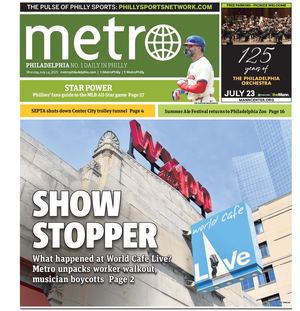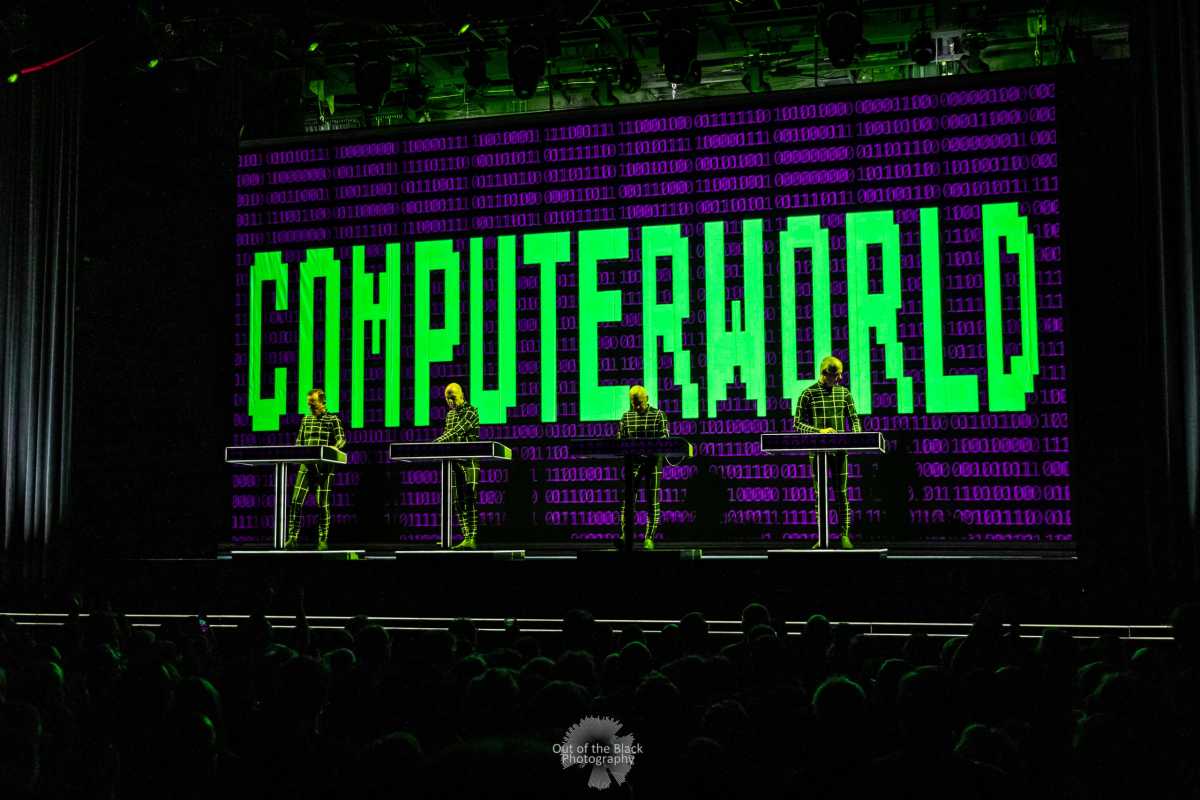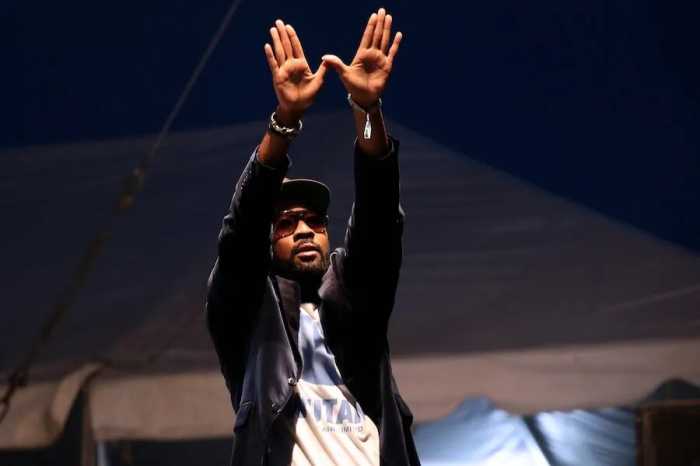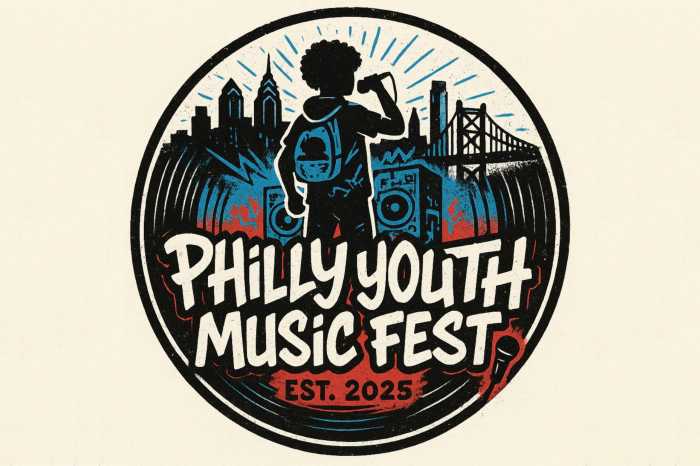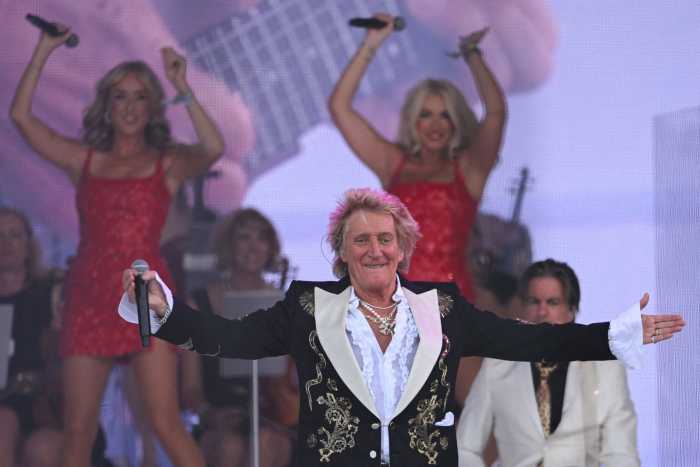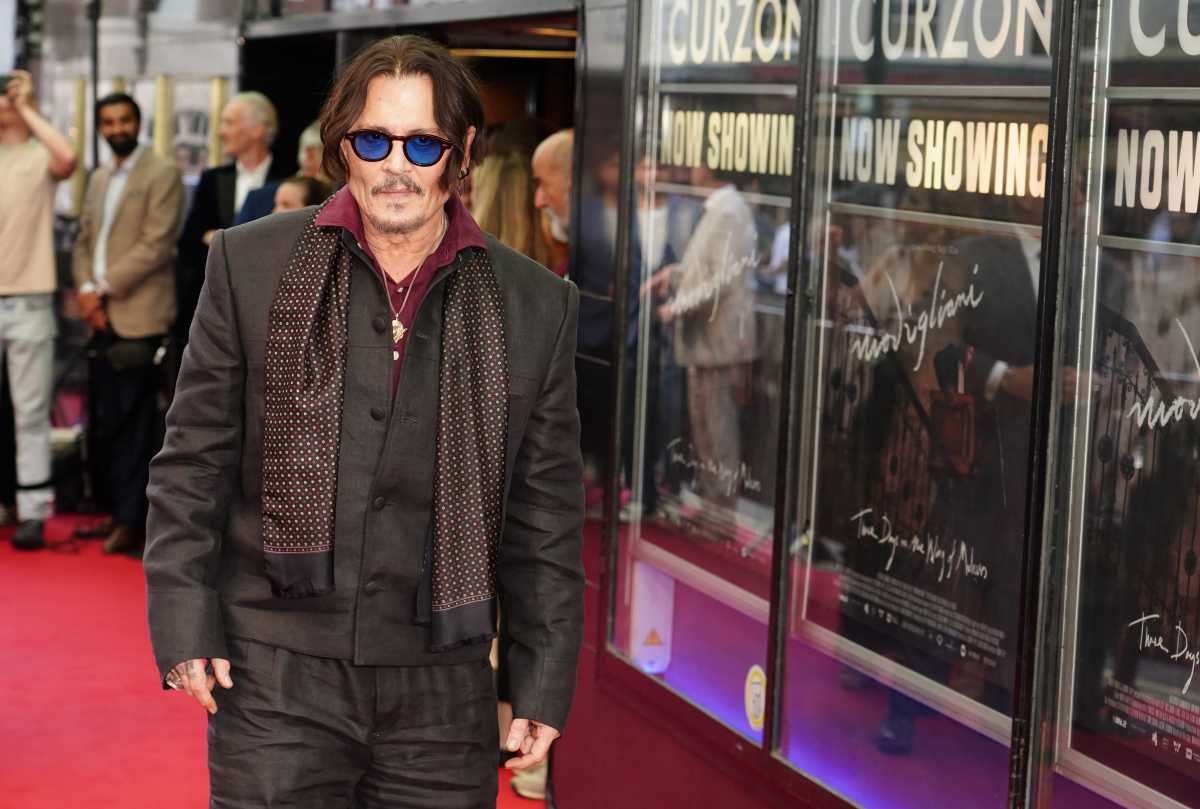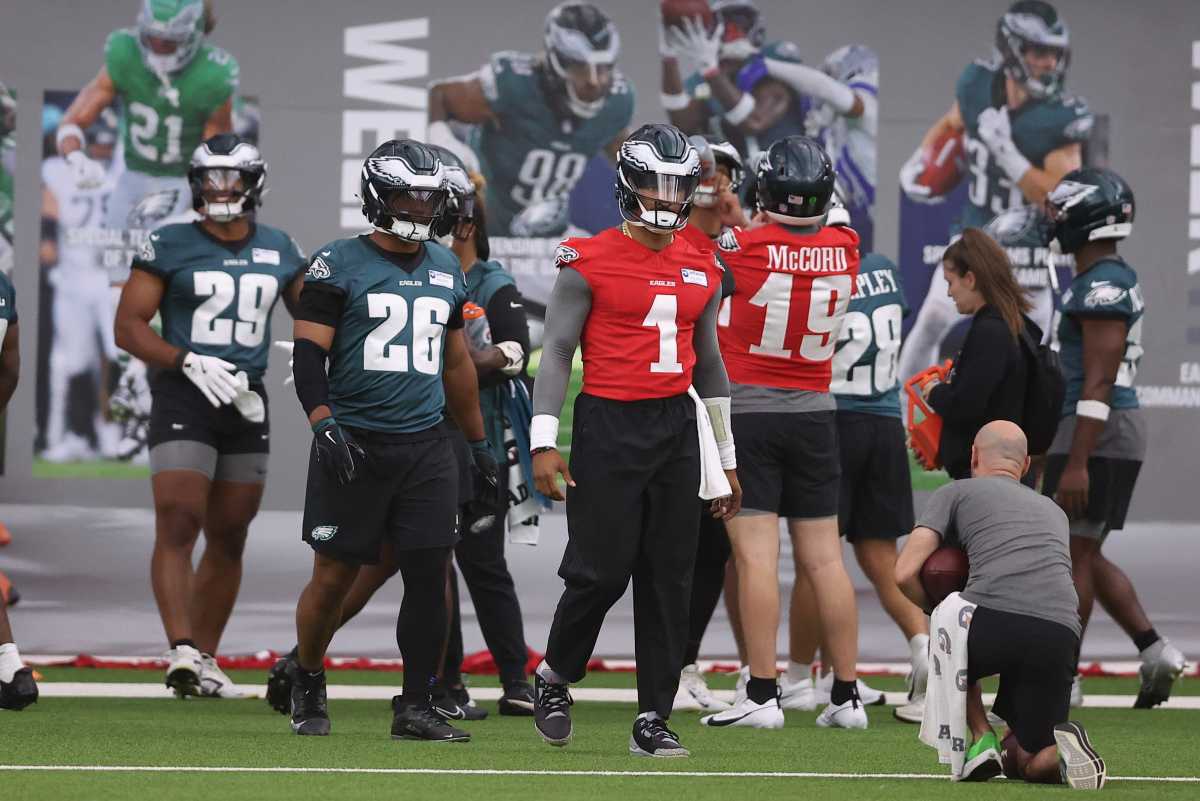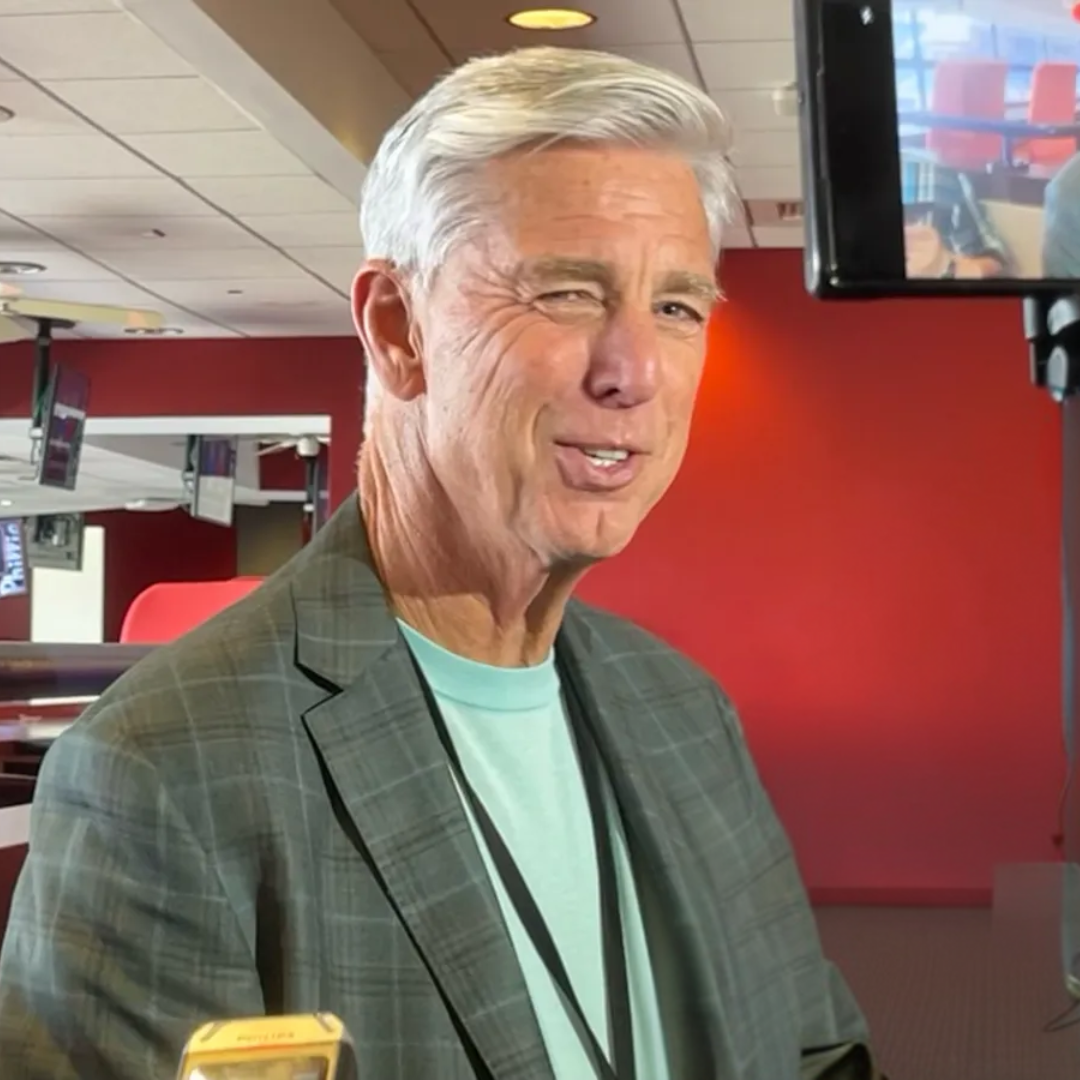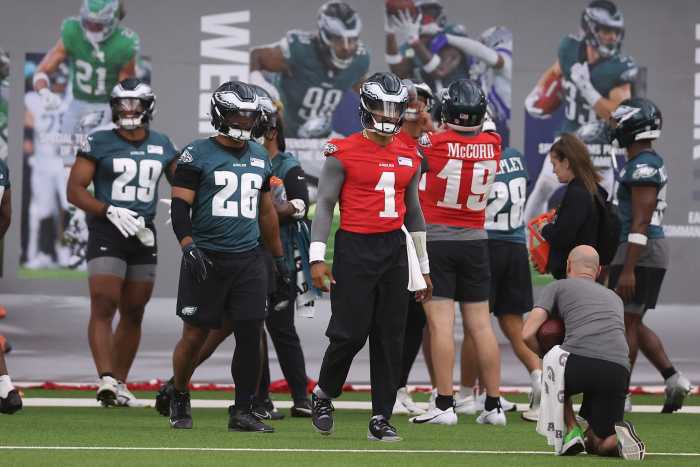Spare, melodic, hypnotic, influential and futuristic. That is what Düsseldorf, Germany’s Ralf Hütter and Florian Schneider – Kraftwerk – were from their start in 1969, and the pair maintain that energy on their 3-D tour, with a tour stop Saturday at The Met Philadelphia.
As unparalleled innovators and pioneers of electronic music – first experimental, then, by the time of “Radio Activity,” widely popular with dance crowds and DJs – Kraftwerk has inspired whole movements in music, perhaps unlikely ones when you consider New York City club DJ Afrika Bambaataa splicing, dicing and extending Kraftwerk’s “Trans Europe Express” and “Metal on Metal” across several turntables for what would, eventually, become his hip hop classic, “Planet Rock.”
The entirety of the Detroit house music scene, too, was built upon the flutter, wow and rhythmic punch of Kraftwerk. And if not for Kraftwerk, would David Bowie have created his immensely powerful Berlin-era trilogy of albums – Low, Heroes and Lodger – that produced not only the anthemic single, “Heroes,” but a track dedicated to the German duo in “V-2 Schneider?”
Rarely granting interviews, Ralf Hütter once told journalist Jon Savage that Kraftwerk’s intention was to create a kind of universal, trans-national, musical language.
“It would be too big-headed to say that we did it, but if it comes, it would be wonderful,” said Hütter. “We have played, and been understood, in Detroit and in Japan, and that’s the most fascinating thing that could happen. Electronic music is a kind of world music. The global village is coming, but it may be a couple of generations yet.”
Often, influence isn’t felt for generations. Kraftwerk’s, however, was all but immediate – especially in the dance clubs of America.
Hütter, the now-late Schneider and their Kling Klang Studio team in Germany had their own hermetically-sealed, innate sense of timing, punctuation and rhythmic interplay. As intuitive as it was (and still is) mechanistic – even on its most recent compilation, the 2022 “Remixes” collection on Rhino Records – the loops and pulsing lines of rhythm and repetition were always elemental to the duo’s sound. With that, Kraftwerk became singular and inventive.
Talking to writer Tim Jonze, Hütter spoke of his supposedly cold, robotic music as displaying a “hopeful melancholy,” with repetitious melodies and clanging rhythms containing all the conflicting emotions of modern life: joy, distraction, loneliness, paranoia.
To that, Hütter responded that electronic music, and the music of Kraftwerk is emotional, and so much more. “People a long time ago had difficulties finding the sensitivity of electronics. But when you go and see your doctor, and he does a heart test, it is electronics that are very sensitive to this. It’s the same with an instrument. That’s why we should use the tools of today’s society to create music – otherwise it is just antique…. Music is about intensity … the rest is just noise.”
The Philadelphia-area has had little chance to experience Kraftwerk in a live setting. The first time was in 1981 at the long-closed Emerald City in Cherry Hill for its Computer World tour where the matching-outfitted ensemble introduced its doppleganging robots playing alongside the band. By the late ’90s, Kraftwerk wowed crowds closer to home at the Electric Factory – now known as Franklin Music Hall.
For its post-pandemic tour, initially planned for 2020, then rescheduled for this month, the computer-generated Kraftwerk promise to unite music, 3-D visuals, and performance art in what the Germans call “Gesamtkunstwerk” a total work of art. To that end, this Kraftwerk — Hütter and his new team of robots, Henning Schmitz, Fritz Hilpert, and Falk Grieffenhagen — will show how man and machine combine for one brilliant new form, and so many classic dance-club hits.
